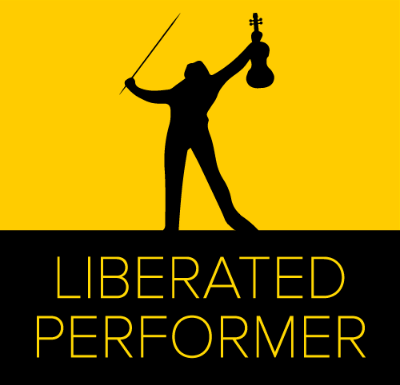Overcoming Stage Fright Before Your Carnegie Hall Debut
When I found out I was to perform a solo in Stern Auditorium at Carnegie Hall, I was in true disbelief. At that time I was just a Masters student at Yale and didn't feel like I was ready for the big stage. This was THE Carnegie Hall after all. There is no NEXT LEVEL.
Ok, there are totally next levels, but it was not going to be a typical performance. This is a place where lots of people want to perform. So how did I, a musician with social and music performance anxiety perform my best and enjoy my time on stage? Here is my advice.
1) How do you get to Carnegie Hall? Practice Practice Practice.
The answer to the old question is true. Receiving a great opportunity is a reflection of all our hard work and it takes a lot of practice. But what about the practice we do to prepare for the concert? Well, we need to practice our repertoire enough to master technical facility and have informed and creative musical ideas. Now we have probably heard this before...of course, we need technique and musical ideas, but we are missing a third of our preparation if we just stick to those aspects. We need to value the mental side as equal to technique and musicality because we often learn rather quickly that performing is a whole different skill. So to expand on the answer to the question of how do you get to Carnegie Hall...Practice technique, Practice musicality, Practice performing.
2) Stick to your pre-performance routine
Coming from years of anxiety-ridden performances where I would be shaking, sweating, and unfocused, I finally invested a large amount of effort to create a pre-performance routine. Through years of research and trial and error, I can now say my routine consistently gets me into the most optimal performance mindset. It began as eating a banana and has developed into a full-fledged process that allows me to enjoy the music even if a family member just passed away. Yeah...that's pretty dark, but you'll have to learn how to perform when tragedy strikes- or relationship problems. Anyway, the concert date was approaching and it triggered the typical stress and anxiety. In these moments I would normally use my pre-performance routine. However, because it was Carnegie Hall, I for some reason went into this hyper research mode where I went looking for the next NEW strategy to improve my routine. Makes sense right?
But here's the thing. I realized I was trying too hard. Why would I risk a new technique at one of the most memorable performances I would ever have? It would be foolish. So I fixed my mindset, relied on what worked for me in the past, and carried out my pre-performance routine.
P.S. If you don't have a pre-performance routine, you need one.
3) Excitement vs. Anxiety
It's probable your heart may increase before the performance. However, make sure you are using the power of self-talk to convince yourself that it's excitement rather than anxiety! Also, you really should just be excited to perform in Carnegie Hall. The acoustics are amazing. The history of the hall is amazing. The stage is amazing. The dressing rooms are lovely. You won't get many moments like this. It's epic.
4) It's just another place to play
I began the article placing tremendous value on Carnegie Hall. It's true, the place is stunning and awesome. However, let's look at it from a performance anxiety standpoint. Are you going to be able to play more comfortably in Carnegie Hall or your bedroom? Right. You'll be more comfortable in your bedroom. So we need to alter our perspectives a little bit. You have to begin seeing Carnegie Hall as an amazing place to play, but not let it be your main motivation for playing well. All the seasoned professionals I perform with and learn from always play their best despite the environment. Their goal is not to perform in certain halls but rather to make great music and powerfully communicate to the audience.
5) A point in the journey
We all have certain markers in our journeys as musicians- like when we are accepted into conservatory/college, graduation, or win a competition or audition. Carnegie Hall or a great opportunity is the same. Sometimes we fail, sometimes we succeed in these moments. Either way we keep going because that's what champions do. One's career is not defined by one moment, performance, or mistake, no matter how visible. We are defined by how we respond to adversity. In fact, I attribute my success at Carnegie Hall to the competition I completely failed. It almost made me quit the violin. If it weren't for that super negative experience and low in my life, I wouldn't of had the leverage to learn how to overcome stage fright and have the career I have today. So no matter what happens, charge forward.
Conclusion
So there's my advice for having a great performance. It takes a lot of work, nothing is guaranteed, and as always, performing tests you to see if you're thinking straight because the stage never lies. With this said, all the hard work pays off and is totally worth it. To be able to thrive and succeed in pressure situations increases your self-esteem and confidence to all time highs which allows you to accomplish anything in life.
Leave a comment below about your preparation process and contact me with any questions!
-Coach Cory
contact@liberatedperformer.com



